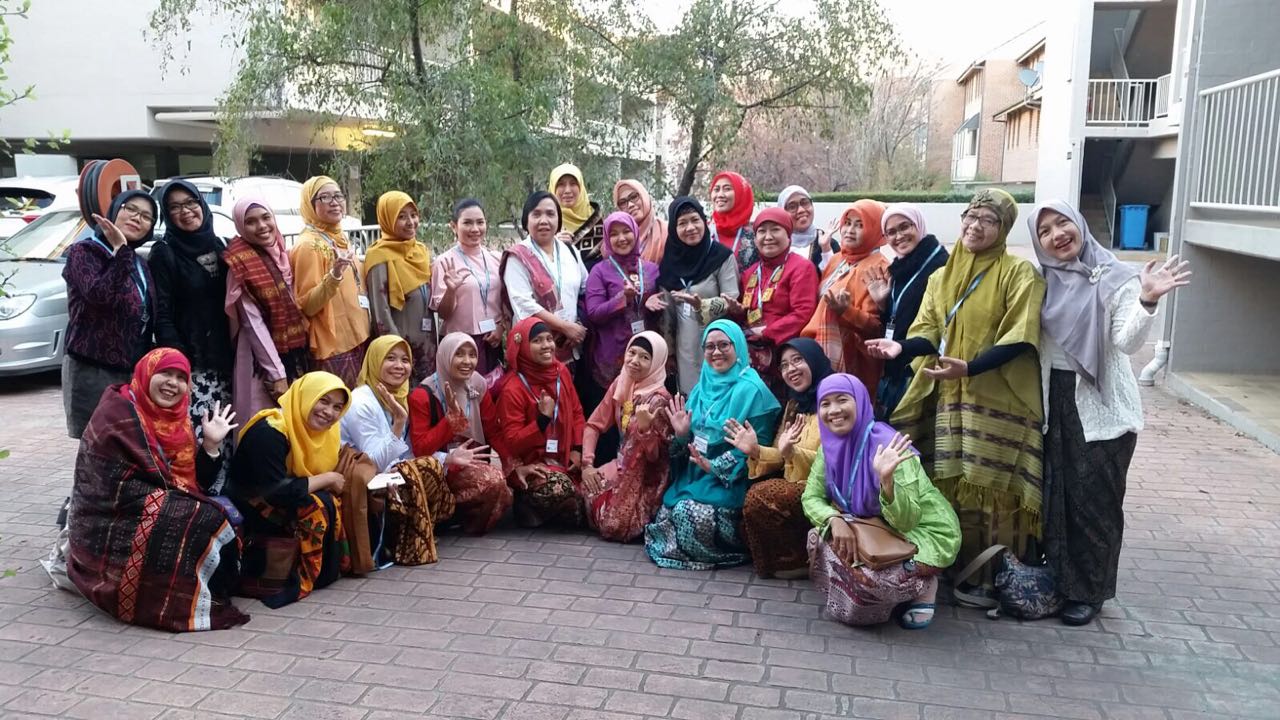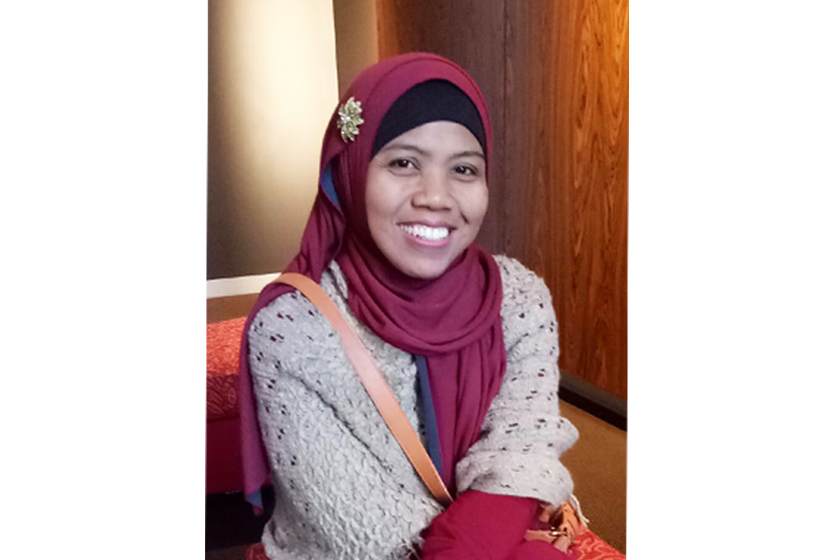In late September 2017, a number of prominent Indonesian Muslim women took part in a two-week Leadership Development Course conducted at the Alfred Deakin Institute (ADI) at Deakin University, Melbourne, Australia. This activity was part of the Australian government’s grant programs to Indonesia under Australia Awards Indonesia.
In the “unity politics” perspective of Indonesia, diversity is often seen as a cause of conflict. Consequently, the slogan we always hear is “unity in diversity”, as a translation of the national motto Bhineka Tunggal Ika, literally meaning “different but one”. We are asked to see the aspect of similarity when looking at diversity. Though we may differ in terms of ethnic group, language, and religion, we are still all part of the Indonesian people. Certainly, this is an important message, and in its context was necessary for Indonesia in uniting the people in a common resolve to expel the colonialists, during the era of Development, and in the present era of reformasi.
However, in the name of unity, the aspect of similarity and the aspect of difference are treated unequally. The focus on sameness receives much more attention than the focus on difference. We are constantly reminded about the dangers of SARA (ethnic, religious, racial, and intergroup relations). For the sake of unity, we are asked to eliminate differences. And this is where the problem arises, because difference is a reality that cannot be ignored.
The excessive attention to the idea of sameness or equality leads to a tendency to look at everything in a uniform way. The focus on sameness then shifts toward a kind of standardisation, or enforced uniformity. The common standpoint is no longer placed at the point of equality but at “uniformisation”, using a certain standard in the name of equality. Generally, this sameness refers to the interests of the majority group, whether in terms of actual numbers or of power. Anything that differs from the wishes, perspective, and interests of the “majority” is minimised for the sake of unity. In this situation, what is referred to as the public interest is in fact no more than a prioritising of the interests of the majority. They become the orientation for the standard of uniformity, while the minorities are expected to adapt.
This neglect of the aspect of difference has also caused us to be out of practice in taking a wise attitude toward differences. The unity that is built by ignoring differences is actually a fragile unity. Dissent becomes a time bomb that is ready to explode whenever sentiments of difference are stirred up, particularly by those whose groups’ interests are impeded by unity. Hence, multiculturalism is essential.
Multiculturalism
Diversity is a human characteristic. It includes matters that are predestined (taqdiri) such as sex, ethnic group, or nationality, and matters considered divine, such as religion, not to mention matters in the realm of free will (ikhtiyari). For example, gender is a human response to innate sexual differences; interpretations and religious traditions are a response to religion; languages are a consequence of the diversity of ethnicities and nations; and many other things are in fact human social and cultural constructs. These various styles are woven together to create a highly diverse culture.
Multiculturalism is an awareness of the need to accept diversity, seeing it no longer as a threat of disunity, but rather as a social asset and strength. Multiculturalism, therefore, does not stop with a mere recognition of the existence of diversity, but aims at the maximum involvement of all the diverse elements of society to achieve our common goals. In this focus, the search for equality lies in efforts to fulfill the public/common interest as the interest of all parties without exception.
In the perspective of multiculturalism, difference receives the same amount of attention as equality. The potential of minority groups is given space to contribute in fulfilling the public interest. Likewise, their special needs receive attention that is balanced with the general needs of the majority. In this way, public services include the special needs of minorities – adherents of minority religions, those with different physical abilities (diffabled), children, the elderly, and women, especially those in their reproductive years, in regards to menstruation, pregnancy, breast feeding, etc. In the multicultural perspective, meeting the needs of minorities will automatically benefit the majority as well.
Multiculturalism has two “wings” of values that reinforce each other, both of which are needed. The first is looking at the aspect of equality as a way to build unity. This point can serve as the foundation for formulation of common values as the common standpoint and umbrella. “Unity within diversity” expresses this value quite adequately. The second is looking at the aspect of difference as diversity of potential to progress together. “Diversity within diversity” reflects this value. Since diversity serves as a basic need for progress, multiculturalism remains unwilling to use any culture, including religious interpretation, to impose injustice.
Diversity in Women
“Diversity within diversity” is a concept that was discussed quite strongly during this leadership course. The Australian government’s idea to choose multiculturalism as a political vision and practice in development was illustrated in the various presentations given by the many female resource persons: politicians, heads of local government, media activists, and NGOs working with immigrants. Even in the issue of health care, the struggle of local NGOs such as the Multicultural Centre for Women’s Health (MCWH) in Collingwood, Melbourne employs diversity as a basis of its services. For example, they provide medical consultation services for women in 19 languages other than English, while also conducting English classes for immigrant women and youth so that they can access information on the basic services to which they are entitled as citizens. This idea of public services based on diverse interests has not only raised awareness about the importance of having a positive and proportional attitude toward outward diversity, but also looking at the unseen layers of diversity that exist within all differences, such as the diversity of elements of gender differences in society.
Imbalanced gender relations often place women as a minority in decision-making forums, even though numerically they are a majority. In a male-dominated world, the public interest is grounded in a male perspective, which has from the start been the benchmark since it departs from the assumption that public space is the space of males, as the main breadwinners. As a result, what is called the “public interest” may ignore the special needs of women. The perspective of multiculturalism seeks to include the special interests of women as part of the public interest to determine policies that provide more complete public services. Like men, women are citizens with full rights.
Women, as one of the elements of diversity in society, also have diversity among them. This includes a variety of religious and cultural backgrounds; varied marital status, such as single, married, married but without children, or single mother; various ages, from childhood through adolescence and the productive years to old age; difference in physical ability; different experiences of violence, and so on. These various conditions have different needs from those of women in general. This awareness about the variety of women’s needs requires that they be involved in formulating the concept of the public interest from a women’s perspective.
Ultimately, multiculturalism teaches us to be united without ignoring our differences. The meeting point of unity is what binds us together, and the points of difference make us stronger. Let us be united in equality and respect for differences.
(Nur Rofiah is a Lecturer in Study of the Qur’an at Perguruan Tinggi Ilmu al-Qur’an Jakarta. She was one of the recipients of Short Term Awards - Leadership Development for Islamic Women Leaders).
This opinion piece was originally published in daily newspaper Kompas. You can read the original article here.



 Nur Rofiah: Diversity Within Diversity
Nur Rofiah: Diversity Within Diversity
